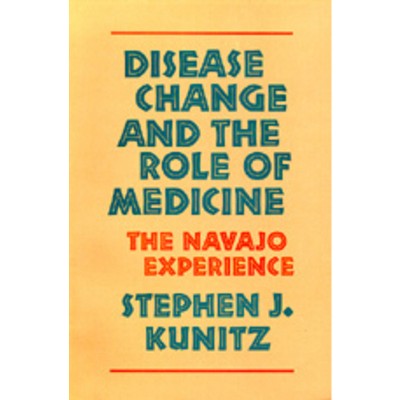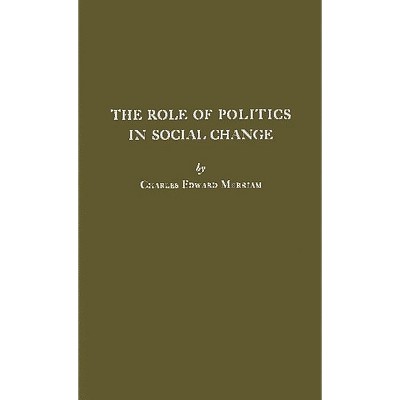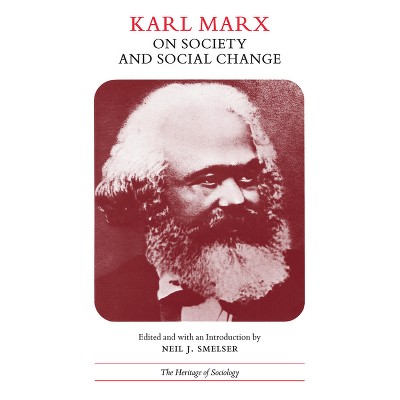Sponsored

Role Change - by Melvyn L Fein (Hardcover)
In Stock
Sponsored
About this item
Highlights
- Role Change: A Resocialization Perspective is a comprehensive introduction to role change theory and the first volume to systematically apply resocialization concepts to problem solving.
- About the Author: MELVYN L. FEIN is a certified clinical sociologist in private practice.
- 212 Pages
- Social Science, Sociology
Description
About the Book
Role Change: A Resocialization Perspective is a comprehensive introduction to role change theory and the first volume to systematically apply resocialization concepts to problem solving. Based on the premise that most personal problems are actually role problems best corrected by role change, this volume thoroughly explores the nature of role dysfunction. Focus is placed on how social coercion generates unsatisfying roles; how role conservation mechanism prevent easy change; and how role loss mechanisms-- similar to those found in mourning--must be set in motion for change to occur. Sociologists, social workers, and psychologists will find this application of sociological insights to clinical practice to be of particular interest.
What is the resocialization perspective? Melvyn Fein explains that many dysfunctional roles cannot be corrected unless they are first relinquished and then replaced with more satisfying behavior patterns. This process entails changing a person's role scripts, including their cognitive, emotional, volitional, and social dimensions. The theory views people not as isolated creatures, but as part of a rich tapestry of human interactions. It sees them as morally responsible creatures who cannot change their basic patterns of living, except through interaction with others. Role Change is essential reading for all those concerned with why people become unhappy, why they often seem trapped in their personal misery, and how professionals can help them negotiate more satisfying lives.
Book Synopsis
Role Change: A Resocialization Perspective is a comprehensive introduction to role change theory and the first volume to systematically apply resocialization concepts to problem solving. Based on the premise that most personal problems are actually role problems best corrected by role change, this volume thoroughly explores the nature of role dysfunction. Focus is placed on how social coercion generates unsatisfying roles; how role conservation mechanism prevent easy change; and how role loss mechanisms-- similar to those found in mourning--must be set in motion for change to occur. Sociologists, social workers, and psychologists will find this application of sociological insights to clinical practice to be of particular interest.
What is the resocialization perspective? Melvyn Fein explains that many dysfunctional roles cannot be corrected unless they are first relinquished and then replaced with more satisfying behavior patterns. This process entails changing a person's role scripts, including their cognitive, emotional, volitional, and social dimensions. The theory views people not as isolated creatures, but as part of a rich tapestry of human interactions. It sees them as morally responsible creatures who cannot change their basic patterns of living, except through interaction with others. Role Change is essential reading for all those concerned with why people become unhappy, why they often seem trapped in their personal misery, and how professionals can help them negotiate more satisfying lives.Review Quotes
?In this book Fein proposes a theory through which sociologists can offer clinical help to individuals. Role theory suggests that people adopt roles--destructive or constructive--in social groups. If they have adopted a destructive role, clinical sociologists can teach them to abandon it, mourn its loss, and adopt a new role. This procedure is called resocialization. The book integrates diagnostic literature and is written in a clear, straightforward style with a minimum of footnotes or technical terms. Included are two brief case histories of a man and a woman, some useful lists of symptoms, and figures to explain theoretical models. There is a nine-page bibliography, a four-page combined subject-author index, and a description of the author's background. The book seems to be directed both to clinicians and sociologists and to the general public.?-Choice
"In this book Fein proposes a theory through which sociologists can offer clinical help to individuals. Role theory suggests that people adopt roles--destructive or constructive--in social groups. If they have adopted a destructive role, clinical sociologists can teach them to abandon it, mourn its loss, and adopt a new role. This procedure is called resocialization. The book integrates diagnostic literature and is written in a clear, straightforward style with a minimum of footnotes or technical terms. Included are two brief case histories of a man and a woman, some useful lists of symptoms, and figures to explain theoretical models. There is a nine-page bibliography, a four-page combined subject-author index, and a description of the author's background. The book seems to be directed both to clinicians and sociologists and to the general public."-Choice
About the Author
MELVYN L. FEIN is a certified clinical sociologist in private practice. As a human services counselor he pursued advanced studies in sociology because he believed a social perspective was vital to understanding personal problems.










